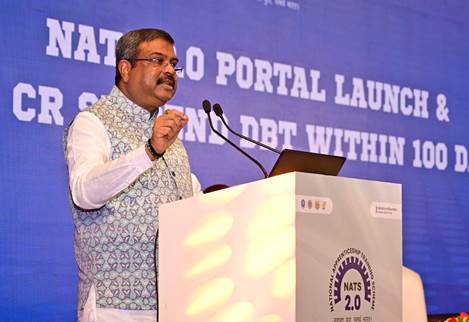Context:
Recently, the Union Minister for Education launched the National Apprenticeship and Training Scheme (NATS) 2.0 Portal
More on the news:
- The portal was developed by the Ministry of Education with AICTE (All India Council for Technical Education) and the Board of Apprenticeship Training/Practical Training (BoATs/BoPT).
- This initiative aligns with the government’s focus on skilling and the employability of youth.
- Stipends amounting to ₹100 crore were also disbursed to apprentices through the Direct Benefit Transfer (DBT) mode.
Key Highlights of the Scheme:
- The Portal streamlines the apprenticeship process by enabling individuals to register and apply for opportunities and assisting industries in managing job openings and contracts more efficiently.
- The government has initiated the payment of its share of the stipend directly to the apprentices’ bank accounts through the DBT system.
- The apprentices undergoing training in various sectors such as IT/ITes, manufacturing, and automobile benefit from this initiative.
National Apprenticeship and Training Scheme (NATS)
- It is one of the flagship programmes of the Government of India for Skilling Indian Youth in Trade disciplines.
- This Scheme comes under the provisions of the Apprentices Act, 1961 amended in 1973.
- It provides practical, hands-on On-the-Job-Training (OJT) based skilling opportunities to graduates, diploma students and vocational certificate holders.
- Duration of Training: 6 months to 1 year.
Significance:
- The NATS 2.0 Portal is a significant effort to democratize apprenticeship, bridge the skills gap, fulfill youth aspirations, and make them future-ready.
- It aims to widen the reach of apprenticeship opportunities and help in the matchmaking of candidates and employers.
Alignment with NEP 2020:
- The NATS 2.0 initiative aligns with the National Education Policy (NEP) 2020, which aims to mainstream vocational education and eliminate barriers between different streams of education.
- It emphasises integrating general and vocational education to ensure vertical and horizontal mobility for students.
- In line with NEP 2020, draft guidelines have been issued by the University Grants Commission (UGC) and the All-India Council for Technical Education (AICTE) for Apprenticeship Embedded Degree Programmes (AEDP)

